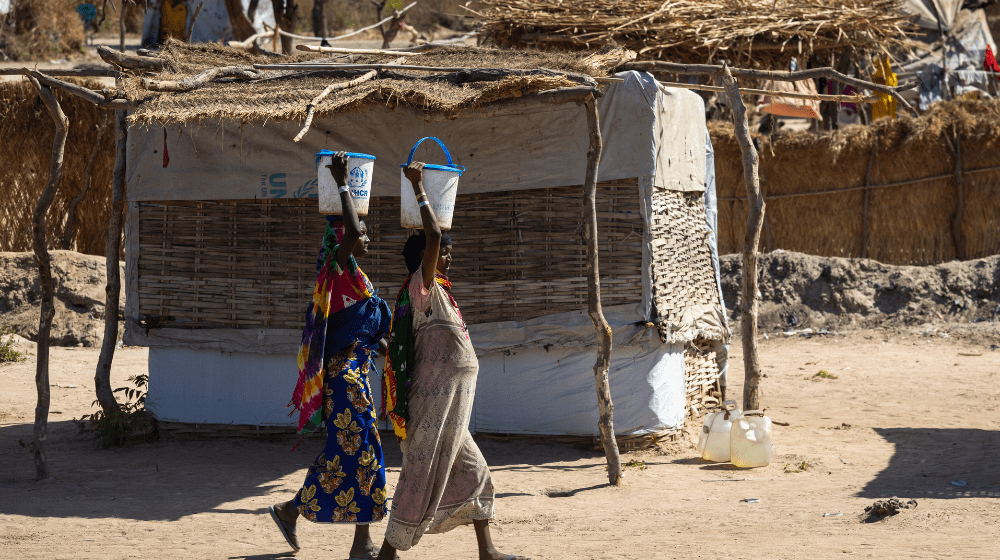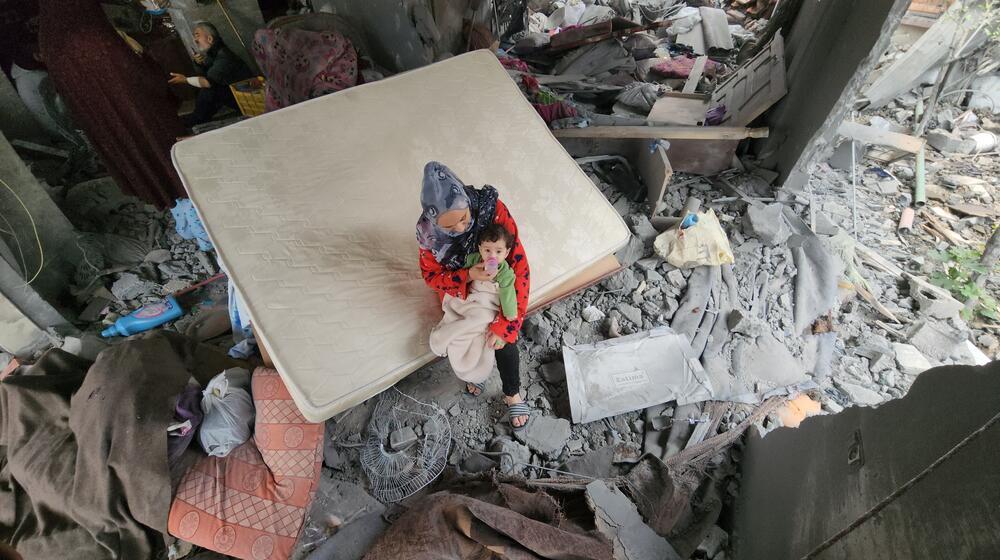Women and girls don’t tend to start wars – or have the power to end them. Yet they suffer disproportionately during conflicts, especially from sexual violence.
In conflict zones around the world, sexual violence has surged to unprecedented levels, becoming a horrific daily reality for women and girls. Rape and sexual assault are being used as weapons of war to terrorize and spark fear in vulnerable communities. Internally displaced, refugee and migrant women and girls are particularly at risk.
Yet the voices of women and girls remain muted or missing from decision-making processes on peace and security and the humanitarian response, isolating them from solutions. And life-saving gender-based violence services, which address the needs, rights and wishes of survivors, continue to be insufficient across countries engaged in conflicts.
With all of this in mind, the theme for the International Day for the Elimination of Sexual Violence in Conflict this year is: “Attacks against health care in conflict-affected areas: Impacts for survivors of conflict-related sexual violence.”
Women’s bodies are not battlegrounds. We can and must do more to stop women and girls from being subjected to the worst of war. As it stands, the international community has not met the scourge of sexual violence with adequate investment. Funding for protection programmes and support services in conflict-affected countries is critical to ensuring that humanitarian-response plans focus on the needs and rights of women and girls. Survivors, as well as women and girls more generally, must be engaged as leaders of humanitarian-response programming, as they are best placed to create solutions for the challenges they face.
Sexual violence in conflicts is a war crime, yet all too often, perpetrators operate with impunity. One of the most enduring realities of conflict-related sexual violence is that few cases are actually reported, let alone investigated or prosecuted.
Stigma and fear, attacks on health facilities, and the breakdown of support systems in conflict zones all prevent women and girls from accessing humanitarian assistance, medical care and counselling, leaving people to deal with the aftermath of violence on their own. With legal systems and protection services for survivors under strain amid conflict – if they exist at all – perpetrators are rarely held to account, undermining overall prospects for peace, security and justice.
Around the world, UNFPA prioritizes the protection of women and girls and advocates for this to be at the centre of the humanitarian response. In 2023, for example, women and girls sought emotional and physical refuge in 1,800 UNFPA-supported safe spaces.
“Sexual violence destroys lives and violates human rights. It must not be ‘normalized’ as something that is destined to happen, something that cannot be stopped,” UNFPA Executive Director Dr. Natalia Kanem has said. “We must work together to end this horror, not allow it to endlessly repeat.”





